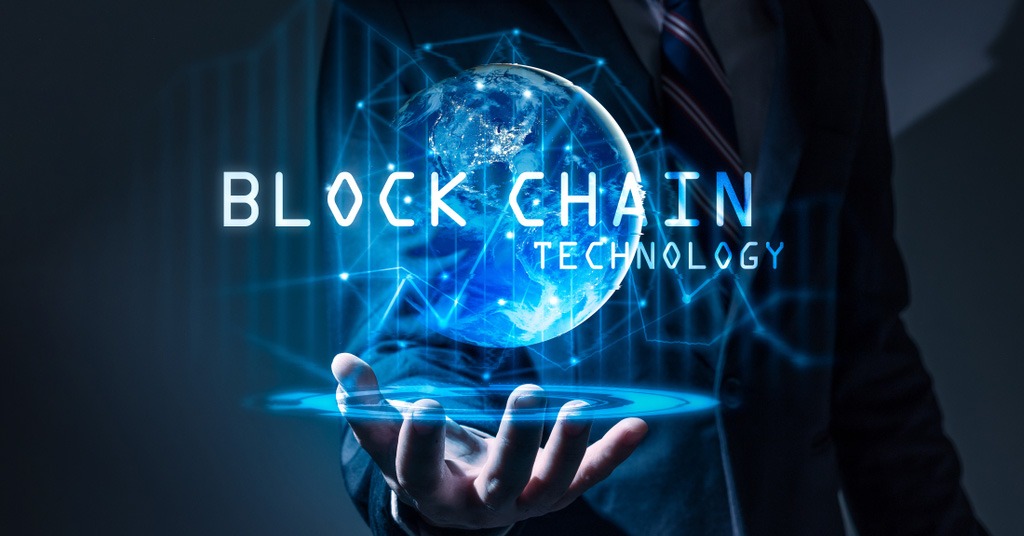If the blockchain revolution ever actualizes its full potential, real-life obstacles need to be overcome

Stages of the blockchain revolution. Source: shutterstock.com
A recent study initiated by the Deutsche Bank reveals the main technological and social changes brought by blockchain. Our editors highlight the main points of “The multiple stages of the blockchain revolution or into the crypto future and back” research written by Jochen Möbert and edited by Stefan Schneider. The authors describe the 10 main stages of the blockchain revolution.
1. A non-state payment means
The main idea behind cryptocurrencies is making financial deals independent from the state or any other central authorities. The first group behind them is known as Cypherpunks. They mainly failed because of the need to tie a new system to a legally existing company and real financial assets. Satoshi Nakamoto, the creator of bitcoin, advanced their ideas.
Historically, bitcoin became the first really popular and valid non-state currency. It is used for both on-chain and off-chain transactions (via the Lightning Network).
However, its market value is evidently too low to compete with ordinary national money systems. The off-chain transactions are small and insignificant like a cup of coffee or something else of this sort.
In addition, the number of blockchain transactions is very limited. It heavily depends on the hardware and mining practice. Storing the expanding distributed ledger is challenging for many users’ devices. The maximum amount of transactions per day up to date is 200,000. All these factors do not allow treating bitcoin as a really powerful market tool so far.
2. A hard-to-regulate object of speculation
Though weak as a means of exchange for goods and services, bitcoin is the object of serious financial speculation. Investors all over the world hope to eventually exchange the cryptocurrency amount they earn for stable national currencies. Their hopes rise with the increasing infrastructure connected to bitcoin.
User and investor numbers grow along with the technology expansion. Since bitcoin can now be sold or purchased for US dollars and Euros, closed-end funds and ETNs (Exchange-Traded Notes) started functioning. Those made investments in cryptocurrency easy and accessible.
In 2017 cash settlements were introduced for the futures market. The Intercontinental Exchange plans to expand this practice in 2019, allowing direct financial compensation in cryptocurrencies. Therefore, the bitcoin market remains tempting for investors. They predict wider adoption of cryptocurrencies by family offices and institutions. Furthermore, the crypto-financial market is immune to the crises characteristic of state monetary systems.
Nevertheless, cryptocurrencies are very unpredictable. Even the most hopeful investors will not risk putting big shares of their assets into such an unstable and virtual system. According to research, the optimal investment rate per individual is not likely to exceed a single-digit percentage.
3. Immutable information recording
Another unique aspect of blockchain technology is a brand new way of storing financial information. To begin with, all transaction history is available to every user at any time. In addition, the system is trustworthy and hard to manipulate. Every user has a guarantee of its transparency. Thousands of storing devices make it difficult to hack.
What is more important, cryptocurrency is possible despite the absence of any actual monetary value, because a group of people believes it to be a kind of money. Taking this concept as a basis, the idea is developed further.
Some countries consider the possibility of linking blockchain technology to the real estate market. If a piece of information denotes a land plot instead of a coin, people can avoid the costly mediation of real estate agents and solicitors. At the same time, the deal will be honest and secured by the community of other users.
The possibilities are countless. Property rights, copyrights, bonds, and shares, etc can be sold within the cryptocurrency market. All other kinds of data may be traded and controlled through the distributed ledger technologies. Experts foresee the potential for every service sector in the blockchain system. Managing and storing important information requires a lot of human resources today. At the same time, sensitive data is often maltreated or sold to malicious third parties. Blockchain can bring revolutionary changes to that area in the near future.
4. Machine-to-machine communication
As of now, the Internet of Things (IoT) means communication between different machines in the same working environment. However, the development of this technology may mean interagency communication as well. To provide transparency while exchanging information in a decentralized way, the blockchain system can be applied.
Critical infrastructure and digital systems will also benefit from decentralization. They will be more immune to hacking attacks. Pilot projects on implementing blockchain solutions into the railway system and the road traffic organization are already taking place in Germany.
5. Immutable codification of smart contracts
Cryptography can be also applied to encoding numerous business contracts. Such smart contract solutions will still record the intentions of the parties, but can automatically launch compensation payments according to the agreement. This system has already simplified flight delay reimbursements. It can be used for the railway as well, not to mention the cancellation of all possible bookings and services.
6. Smart contracts plus artificial intelligence
When smart contracts become the norm, it is time for the next revolutionary step. Artificial intelligence can expand agreement monitoring to the areas of healthcare, insurance, or accident investigation.
For instance, various sensors and cameras in a vehicle can track the events leading to a crash. All the data can be transferred to insurance companies, ambulance services, and the police. It will help avoid bureaucracy and speed up insurance payments.
Patients taking their medication can be remotely monitored. Wrist sensors may record pulse, blood pressure or body reactions on the medication intake. Not only can it be useful for attending doctors, but also for pharmaceutical companies, and health insurance specialists. Treatment can be optimized for individual needs. Physicians can access the patient’s state objectively, even at distance. New drugs can be developed and tested more easily. Insurance payments could occur without long investigations.
At the same time, sensitive personal information will be automatically made anonymous to those not involved and open to all the interested and authorized parties.
7. The global AI society
Blockchains have a huge scientific potential as well when combined with AI. Many research and experiments require processing an enormous information range. Instead of central supercomputers, scientific communities may use global networks.
Blockchain will then simplify AI algorithms, efficiently allocating them to different network nodes. Moreover, distributed ledgers can store partial solutions in a trustworthy manner. This will make global research both flexible and reliable.
8. Hopes of depoliticization
The new type of communication and cooperation could lead to brand new world order. Cypherpunks always wanted their inventions to destroy the central role of state institutions. Direct interactions could eliminate corruption and political influence over the financial market. Hence, blockchain solutions might allow individuals to develop their business ideas, negotiate, sell and purchase without the unnecessary intrusion and obstacles presented by the state bureaucracy.
9. Moving towards digital democracy
Any allegations of faking election results could be disproved by blockchains.
Using cryptography for coding the electors’ votes and storing them in publicly monitored distributed ledgers will prevent any falsifications.
Moreover, this gives all citizens the possibility of participating at home. Not only does this technology have the potential for cutting state expenses, but also promotes a direct democratic option. People would not need state representatives to protect their interests. All the important national and regional decisions can be taken into consideration from actual individual opinions. People can vote for or against any state projects and draft bills via the blockchain system. Therefore, the state budget can be utilized for public well-being rather than the upkeep of numerous officials and voting booths.
10. Decentralized autonomous organizations (DAO)
Casting votes immediately and transparently would also transform all commercial organizations. Large corporations and companies will be able to make strategic decisions quickly and efficiently. All stakeholders can participate in the decision-making process without the companies’ management influences via blockchain technology.
This way, blockchains can theoretically undermine the traditional hierarchies of modern societies. New social and economic realities will involve decentralized autonomous organizations (DAO) where every member will be an active decision-maker.
Obstacles
Of course, all these rosy anticipations face a lot of real-life obstacles. If the blockchain revolution ever actualizes its full potential, those need to be overcome.
To begin with, blockchains are very expensive today. Their synchronization takes much more money and energy than traditionally centralized computer storage.
Cryptography is still a relatively new field, with a limited number of experts able to create and maintain blockchain solutions. Many crypto-projects fail because the ambitions of their initiators are too high compared to the abilities of the experts and modern technologies.
Blockchain technologies have low scalability. Their maximum transaction number is very low and doesn’t allow adaptation for mass projects.
Despite any security systems, hacking is still a possibility. Not to mention potential losses or theft of individual encryption codes able to let the malefactors into the system.
Finally, decentralized solutions should not be adopted too quickly. Swift economic and social changes will make many professions obsolete. Mass unemployment will create a negative attitude toward technology. This will disrupt all possible positive development.
Moreover, blockchain potential power does not automatically mean people will use it wisely. Telling the truth, considering all individual opinions will improve our society only if the participants are well aware and informed on the subject of voting. Hence, public education must come before incorporating blockchain technologies into democratic processes.
SEE ALSO:









